Moscovici vs. Schäuble on the Tax Avoidance Package
Adelina Marini, February 16, 2016
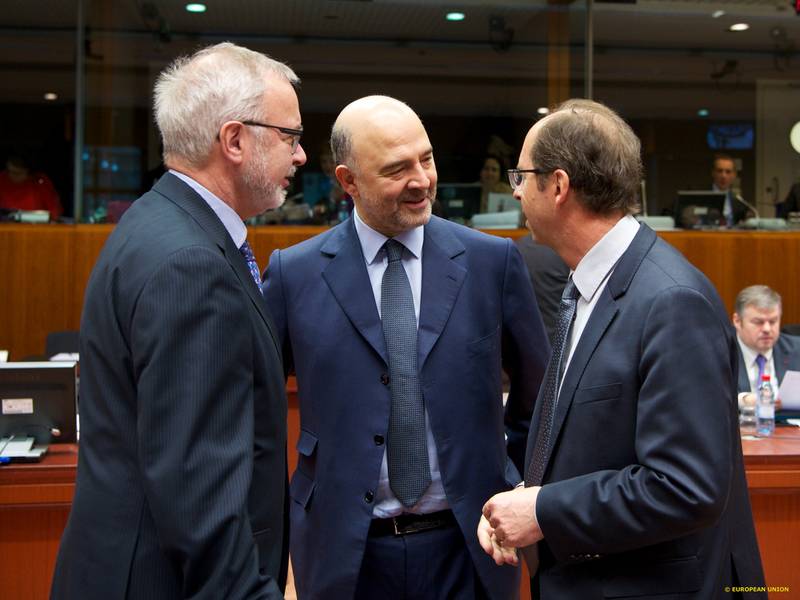 Right at the start of the presentation of the package on fighting tax avoidance by multinational companies European Commissioner for tax affairs Pierre Moscovici (France, Socialists and Democrats) forecasted that discussions on it will not be easy. During the debates in the European Parliament and in front of journalists he was optimistic that the package would be backed by the Council. His optimism, however, evaporated during the first discussion of the five proposals in the Economic and Financial Affairs Council (ECOFIN) in Brussels last Friday. The reason being Germany’s demand, backed by other member states, that the package be split in two parts – an easy one and a difficult one, so that work on the proposals can progress. The Dutch presidency also stated a support of sorts for such an approach by proposing two deadlines – reaching a political agreement on the administrative cooperation directive as early as March and negotiating an agreement in May on the tax avoidance directive.
Right at the start of the presentation of the package on fighting tax avoidance by multinational companies European Commissioner for tax affairs Pierre Moscovici (France, Socialists and Democrats) forecasted that discussions on it will not be easy. During the debates in the European Parliament and in front of journalists he was optimistic that the package would be backed by the Council. His optimism, however, evaporated during the first discussion of the five proposals in the Economic and Financial Affairs Council (ECOFIN) in Brussels last Friday. The reason being Germany’s demand, backed by other member states, that the package be split in two parts – an easy one and a difficult one, so that work on the proposals can progress. The Dutch presidency also stated a support of sorts for such an approach by proposing two deadlines – reaching a political agreement on the administrative cooperation directive as early as March and negotiating an agreement in May on the tax avoidance directive.
During the public discussion in ECOFIN first to speak was German Finance Minister Wolfgang Schäuble, who recommended that first of all the provisions already agreed on in the Organisation for Economic Co-operation and Development (OECD) and at the G20 level be approved, because this could happen quickly. Word is of the OECD/G20 initiative for creating rules against tax base erosion and profit shifting, known as BEPS. They are the easy part, because many key players outside the Union will be following these standards and besides they are already prepared and could be directly implemented in national legislation. The second part of the package goes way further than internationally accepted rules and causes resentment in some member states. According to Schäuble, the second part is just as important, but “we will lose time, a lot of time”.
Schäuble pointed out another problem. Having Germany obliged to implement BEPS in its national legislation, if the tax package of Moscovici takes too long, for ECOFIN discussions, he said, are always very difficult, then one and the same thing will have to be implemented twice – once in fulfilment of commitments to OECD/G20 and a second time when it becomes European law, which again needs to be implemented in the national one. “It's an example of 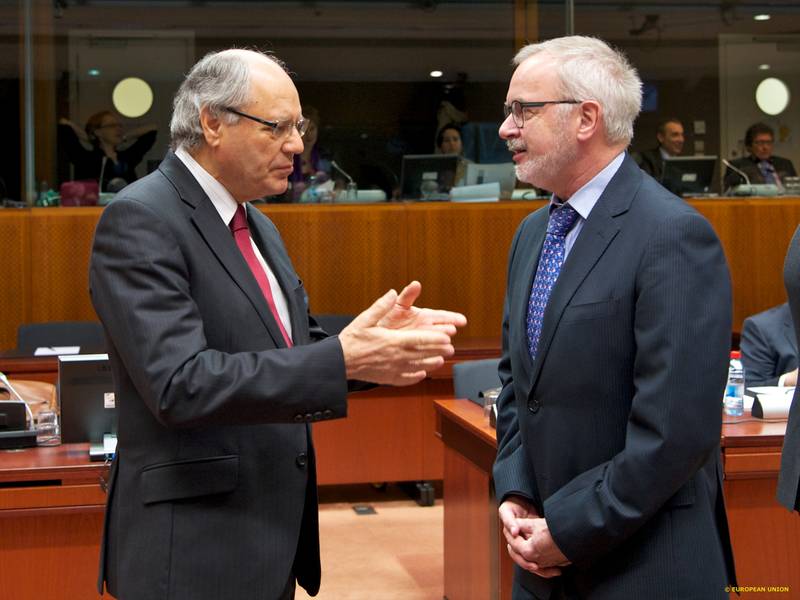 how we create bureaucracy”, added the German finance minister. “Let's concentrate on the BEPS, nothing more, no deviation”, he said, setting the tone of the conversation.
how we create bureaucracy”, added the German finance minister. “Let's concentrate on the BEPS, nothing more, no deviation”, he said, setting the tone of the conversation.
His appeal was, with no hesitation, accepted by most ministers, who spoke on Friday. British finance minister George Osborne surprised everyone by stating unconditional support for the proposals and demanded a unified European approach. “The UK has said that we will be one of the first adopters of the OECD but I very much agree that, given the international nature of this challenge, it would be better, rather than every single country implementing these rules individually and all therefore doing it in different ways, we should have a European approach to this”. He did, however, agree with Wolfgang Schäuble that it is best that first of all the BEPS is worked on and then on the rest. Spain, Italy, Luxembourg, and Belgium supported the German finance minister’s proposal. There were a number of nuances, however, hidden behind this support, which revealed which states will create the most problems during the discussion of the second part of the package that includes the directive on fighting tax avoidance, which has in it the most controversial measures like the rule on asset transferring.
Finland Finance Minister Alexander Stubb, fully aware that the discussion is public, presented three principles and three challenges, looking at the cameras most of the time. The principles are that taxes should be due where the profit is made; most tax avoidance measures are quite good; and third, damages to the companies’ competitiveness must be avoided. The first large challenge in the Moscovici package is the threat to national sovereignty. Alexander Stubb underlined that tax policy was still of national competence and is a matter of sovereignty. Secondly, the tax systems of member states vary substantially and are very complicated. The third challenge is that you never know what the economic effect of the package will be. The Finnish finance minister requested that the Commission prepared an impact assessment, suspecting this will turn out to be a mission impossible.
Such an assessment was requested by the Maltese finance minister, Edward Scicluna, whose state is not a member of the OECD or G20. Scicluna was most reserved, even attacking in his statement, pointing out that some elements of the package were welcome, while others go far beyond what is requested for fighting fraud in the internal market. He also requested an impact assessment, both on a by country basis and of the EU as a whole. The Union is not homogeneous and thus common rules must not be enforced, he said. “We find it difficult to understanding why purely domestic scenarios should be covered by these rules. Evidently where there is no BEPS risk, nor risk for the functioning of the internal market. These suggested rules seem rather doubtful on subsidiarity grounds”, said the Maltese finance minister and leaned on the experience with the Financial Transactions Tax in order to stress that it is important to work on quality, rather than haste.
Belgian Finance Minister Johan Van Overtveldt was also strongly reserved. “If the EU would impose obligations that clearly go beyond of what has been agreed internationally by the OECD level, we run, of course, the risk of weakening the competitiveness of our economies which would, in turn, weaken investment, economic growth, job creation and end up weakening the public finances”, he said. The minister warned not to lose sight of events in Asia and the USA, for some of them have no wish to implement the OECD proposals on BEPS. Johan Van Overtveldt announced that at this stage Belgium would rather decline backing the initiatives, which go beyond what the OECD suggested. This means that Belgium would support a possible first part of the package, but will be against the second one.
Luxembourg Finance Minister Pierre Gramegna also voiced concerns regarding the effect on competitiveness. He warned that not only jurisdictions outside the EU, which tolerate unfair tax practises, were a problem, but also the behaviour of some large states on a global scale. Gramegna did not name them. Greek Finance Minister Euclid Tsakalotos in turn said that transparency was not important by itself. “The implementation, stupid!”, said Tsakalotos, clarifying that he was quoting one of the finance ministers. The words are of German Finance Minister Wolfgang Schäuble, said during this year’s World Economic Forum in Davos.
Polish Finance Minister Paweł Szałamacha also expressed reserves. "Direct taxation is primarily the competence of the member states. Therefore this should be respected while we’re working on this package”, he reminded. According to him, the timeline, given by the Dutch presidency is too ambitious. This was the first Council meeting for the new Croatian finance minister, Zdravko Marić, who made a long speech with a proposal for combining some of the already existing instruments, for example the changes in the directive on interest rates and royalties go very well together with the mandatory information exchange. This would be of practical use, he said. Croatia is of the opinion that wider measures on the European level than the ones proposed by the OECD will contribute to the better functioning of the internal market and simplification of some 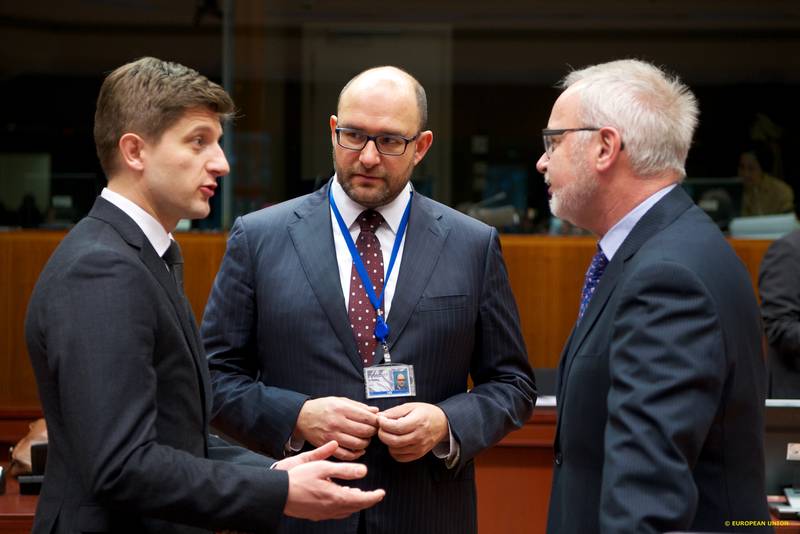 legislative measures. Zdravko Marić used the opportunity to ask the EC for technical assistance for those states, which are not OECD members and are not familiar with BEPS in detail.
legislative measures. Zdravko Marić used the opportunity to ask the EC for technical assistance for those states, which are not OECD members and are not familiar with BEPS in detail.
Commissioner Moscovici insisted the package be kept intact with the argument that most of the BEPS regulations had already been approved by member states anyway, “so most of the work has been done”. He voiced concerns that if the package were separated, the EU would be left with just the BEPS regulations. The Commissioner again repeated, this time in front of the ministers, that the integration in the EU was far greater than in the OECD. The treaties allow for many more things to be done. “The risk we're likely to run if we just leave it at BEPS and nothing else is that we won’t be able to protect the integrity of the internal market”, he said and added that this would allow multinational companies to continue to exploit the gaps. Pierre Moscovici appealed that the package is deliberated at ease and conclude work on it by the end of the Dutch presidency (July 1).
Wolfgang Schäuble intervened at the end of the discussion to say that he completely agreed that just the BEPS is not sufficient. “But I think it will take some time. I doubt we will be able to implement the whole package during the Dutch and the Slovak presidency. My proposal is only realistic. Let's take the opportunity to do quickly what has been achieved on global level”. The discussion ended with the intervention of Dutch Finance Minister Jeroen Dijsselbloem, who stated that one way or another there is going to be a solution for the package. Some things could be done really quickly, while others would require more work. In the proposed legislation there are things which do not come directly from BEPS and will require more talks, he said. He added that it was still too early to say how long will it take and appealed to pragmatism.
Bulgaria did not join the discussion, as well as several other member states. Some of the speakers stated that they were still not well familiar with the proposal. Among them were Hungary, Latvia, Sweden, Austria, and the Czech Republic.
Pierre Moscovici was thrilled by the unexpected support he received from the British finance minister, George Osborne, on one of the controversial measures in his package – transparency of country-by-country reports of the multinational companies. According to Osborne, these reports should be public. Moscovici had been cautious so far, stating that at this stage it is unclear what the effect of publicity would be on the competitiveness of these companies. According to Osborne, however, the way ahead is towards publicity. He stated that Great Britain will look for support on the international arena. “Publicity of country-by-country reports is where history is taking us. For me its not whether but when. And that, again, is a matter of political will. George's point is a significant declaration”, said the French Commissioner.
Translated by Stanimir Stoev
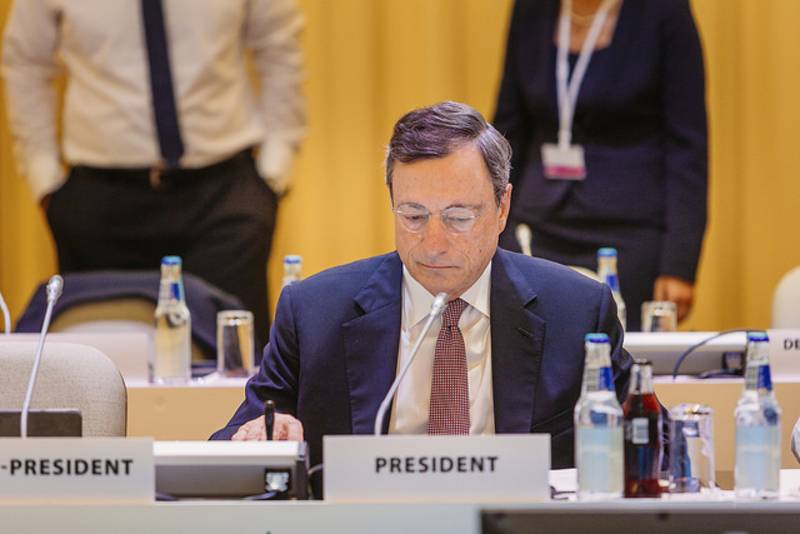 Mario Draghi | © ECB
Mario Draghi | © ECB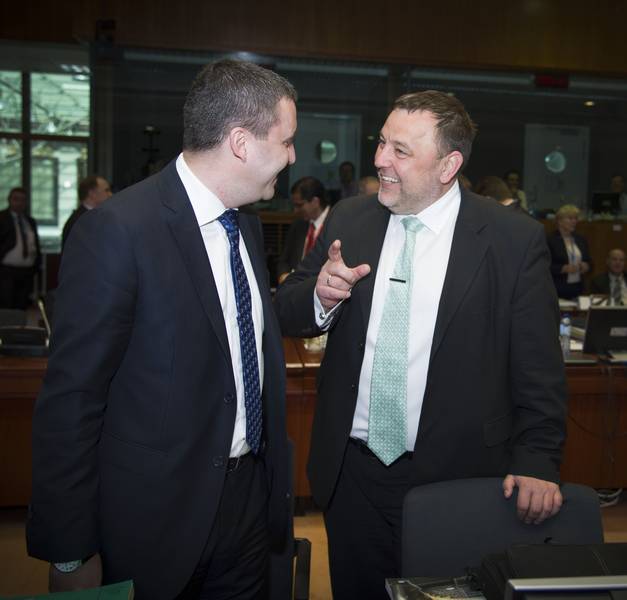 Vladislav Goranov, Sven Sester | © Council of the EU
Vladislav Goranov, Sven Sester | © Council of the EU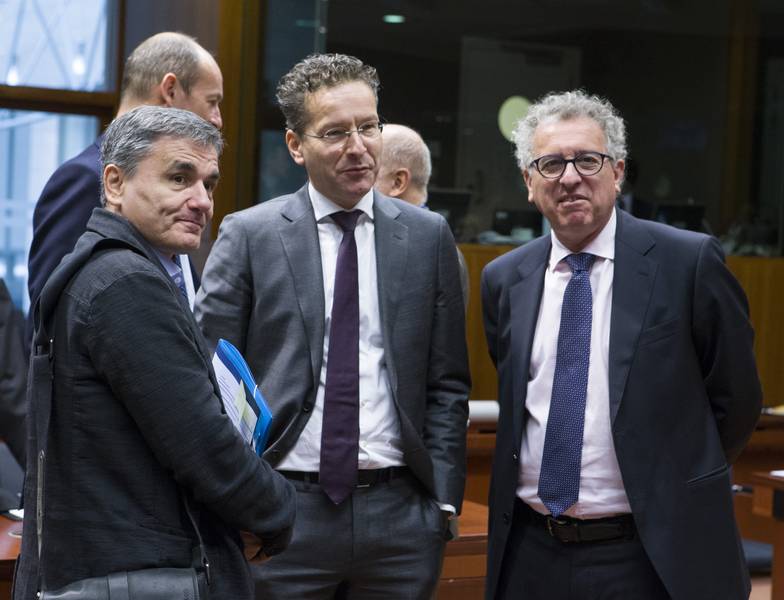 Tsakalotos, Djisselbloem, Gramegna | © Council of the EU
Tsakalotos, Djisselbloem, Gramegna | © Council of the EU